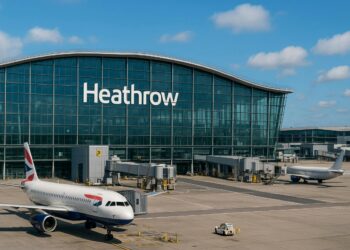The Federal Government has suspended the introduction of five percent excise duty in the digital economy sector, a tax which was earlier proposed by the Minister of Finance, and Isa Pantami is taking credit for this development.
The Minister of Communications and Digital Economy, Isa Pantami disclosed this in Abuja during the inauguration of a committee that will review the policy.
BASIC FACTS
- The FG on Monday announced the suspension of a proposed 5% tax on phone calls.
- The suspension was announced by the Minister of Communication and Digital Economy.
- The 5% was earlier proposed by the Minister of Finance and was roundly rejected by Nigerians.
WHAT WE KNOW
The Minister of Communication and Digital Economy, Isa Pantami on Monday said the FG have suspended the 5% excise duty on the telecommunication, information and communication, and technology sector proposed by the Minister of Finance.
Pantami who spoke in Abuja, during the inauguration of a committee to review the proposed policy, said he personally rejected the policy and advised president Muhammadu Buhari against it in view of the effects it would have on the digital economy.
According to Pantami, the introduction of excise duty in the telecommunication and information and communications technology industry would jeopardise the successes already recorded within the industry.
The Minister noted that currently the ICT sector is over-burdened with multiple taxations both at the federal and state level.
He further disclosed that there are more than 41 taxes that telecommunication and ICT companies are paying and that it would be unfair to subject them to payment of excise duty.
The committee inaugurated in Abuja on Monday, has the Minister of Communications and Digital Economy, Isah Pantami as chairman and the Minister of Finance, Mrs Zainab Ahmed as a member.
Other members are the Executive Secretary of the Nigerian Communications Commission (NCC), Professor Umar Danbatta, the Executive Chairman of the Federal Inland Revenue Service, Muhammad Nami and representatives of the telecommunication industries.
COMMENTARY
Recall that there was a general outcry against the proposed 5% excise duty on telecommunications. The duty if implemented, would have led to an increase in voice calls, SMS, data etc.
It’s ok that common sense prevailed. The burden of new tax would have been unbearable to many citizens who are already groaning under the weight of rising inflation, poor infrastructure and inherent poor standard of living.
There is no doubt that Nigeria is in dare need of new sources of revenue, owing to the almost cash strapped situation the current administration has found itself.
The Buhari administration has been running the Nigerian economy on loans, borrowed from within and outside the country. Currently the federal government is unable to service these loans and still carry out capital projects in the country.
This is because the current rate of loan servicing have surpassed the country`s revenue, which has become a waring situation and of great concern to everyone concerned.
Therefore, in effort to sure up revenue, the Buhari administration is seeking ways to generate income. One of this is the proposed introduction of the additional 5 per cent tax on ICT related services.
However, those who opposed this criticized the federal government for its lack of mindfulness and empathy to the sufferings that Nigerians are currently going through under the economic hardship foisted on them.
Watchers of events have related the revenue crisis under the current administration to massive treasury looting, wastes and corruption, which President Buhari have failed to curb for the past 7 years.
For instance, the Nigerian economy runs mostly on the income generated from oil and gas productions, as the sector counts for the greatest GDP and the nation`s revenue.
This income have in the recent time substantively dwindled due to the drop in oil production. Currently, Nigeria has been unable to meetup with her OPEC quota of crude to the international oil market due to brazen corruption in the sector.
Over 400 barrels of crude are stolen on daily bases by persons within the corridors of power in politics, the Nigeria military and other security forces. The Buhari administration knows and very well understands what is happening, but have been accused of looking the other way.












